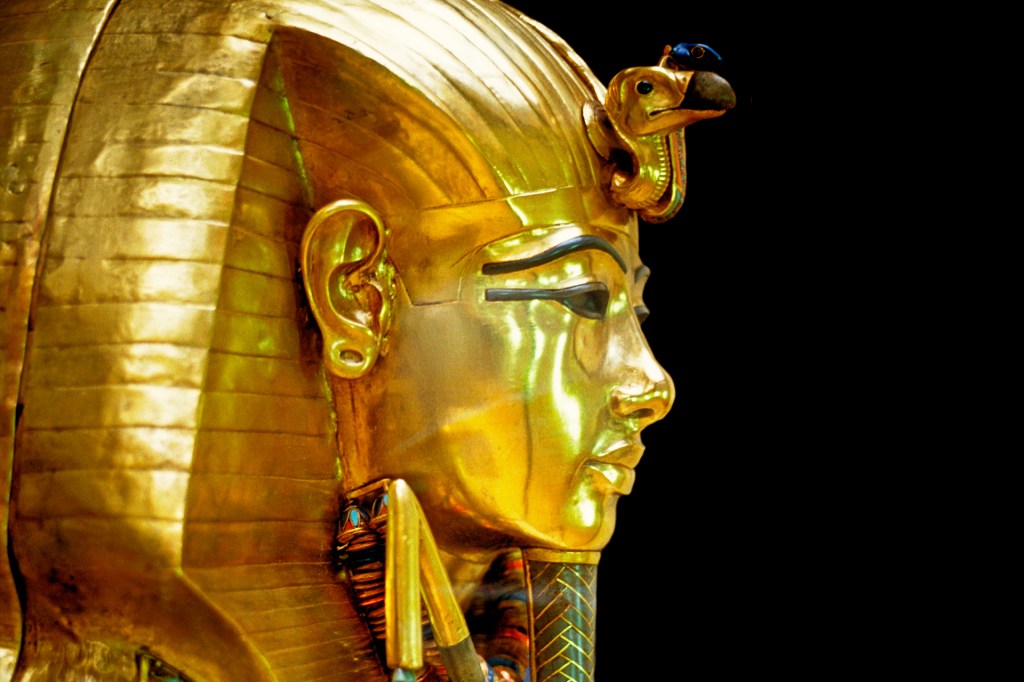
The leaders of ancient Egypt were called pharaohs. King Tutankhamen was Egypt’s youngest pharaoh. He became king when he was just 9 years old. He died 10 years later. King Tut’s mummy was buried in the Valley of the Kings. The tomb, or burial place, stayed hidden for thousands of years.
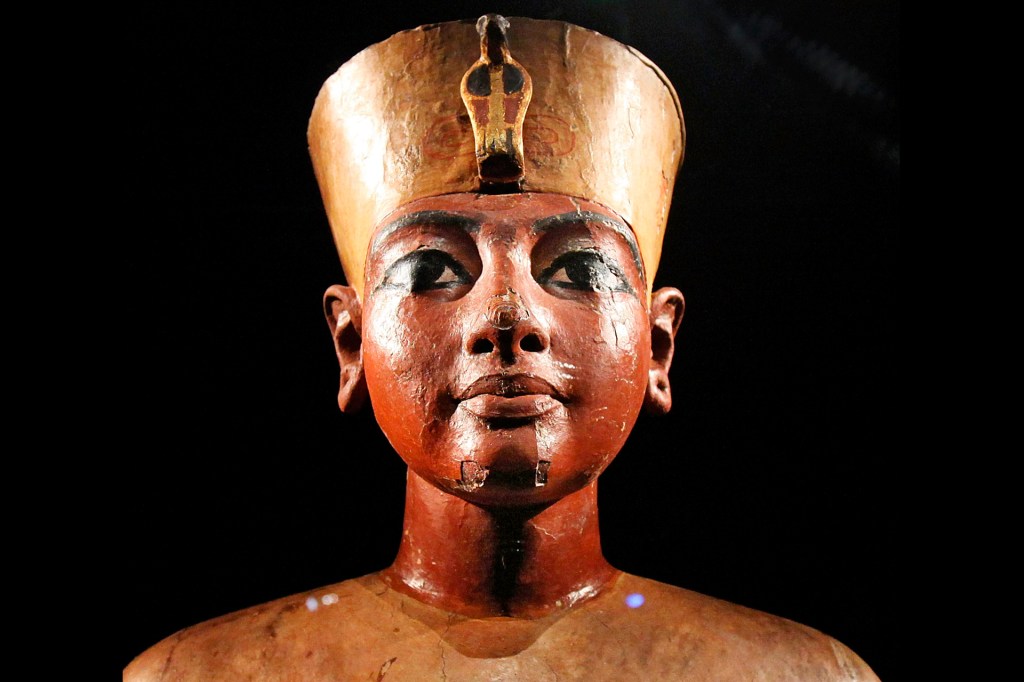
This painted statue of King Tut is made of wood. Tut is wearing a crown decorated with a cobra.
BEN HIDER—GETTY IMAGES
A Historic Search
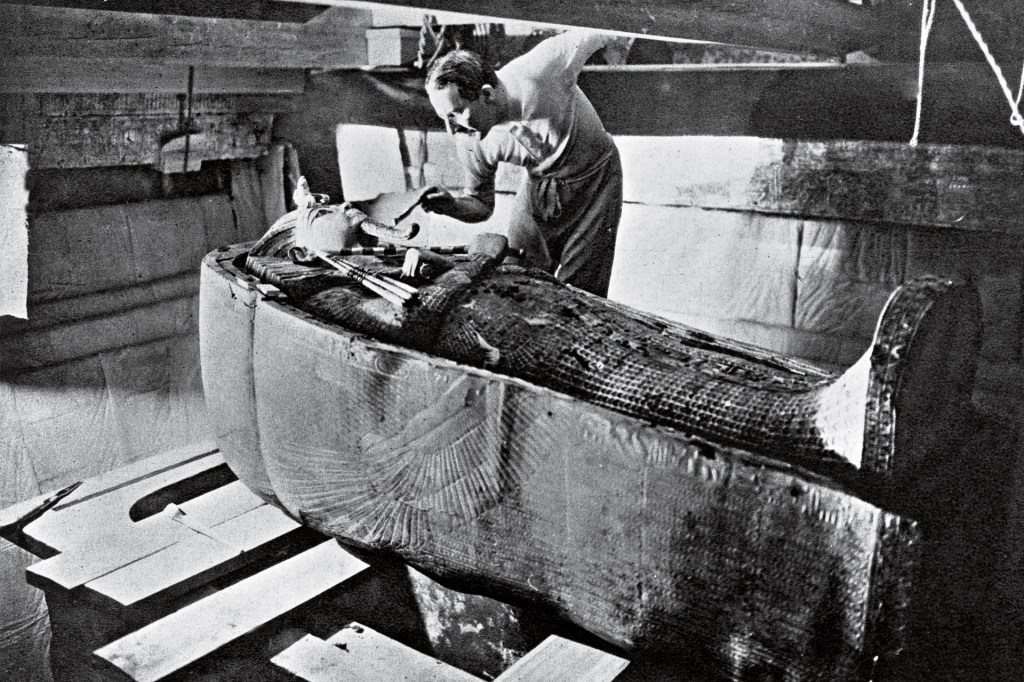
Howard Carter studies the sarcophagus of King Tut. He found it in Tut’s tomb with many treasures.
HARRY BURTON—APIC/GETTY IMAGESAn archaeologist learns about history by studying objects left behind. These objects help us understand how people lived long ago. Howard Carter was an archaeologist. In 1891, he went to Egypt. He was looking for King Tut’s tomb. He finally found it in 1922. The entrance was covered by rocks and sand. Carter explored the tomb. His discovery taught the world about King Tut and ancient Egypt.
A Tomb of Treasures
King Tut was buried with a gold mask. His body was covered with jewelry. The tomb’s four rooms held almost 5,000 treasures. These included furniture, chariots
chariot
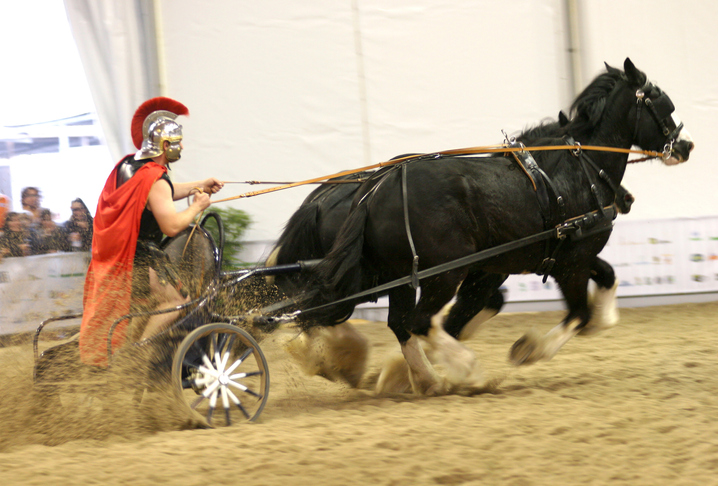 TINA_RENCELJ—GETTY IMAGES
a wheeled vehicle pulled by horses
(noun)
The chariot with the fastest horses won the race.
, and statues.
TINA_RENCELJ—GETTY IMAGES
a wheeled vehicle pulled by horses
(noun)
The chariot with the fastest horses won the race.
, and statues.
This year, a new museum is expected to open in Egypt. It is called the Grand Egyptian Museum. Objects from King Tut’s tomb will be on display. So will other artifacts
artifact
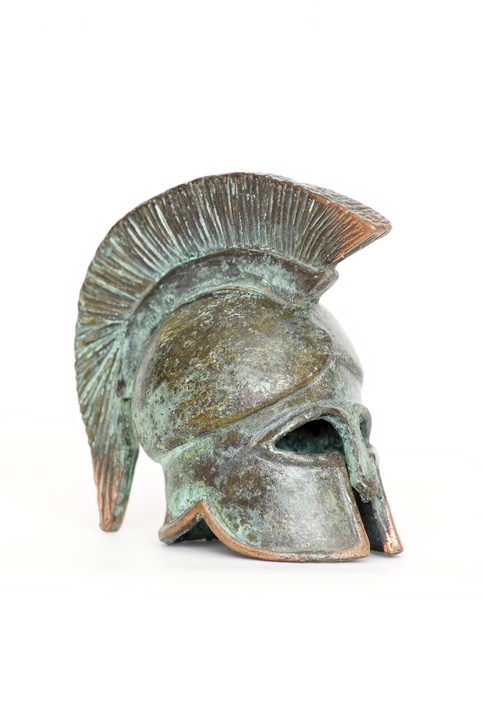 AEDUARD—GETTY IMAGES
an object made by humans in the past
(noun)
We saw artifacts from ancient Greece at the museum.
.
AEDUARD—GETTY IMAGES
an object made by humans in the past
(noun)
We saw artifacts from ancient Greece at the museum.
.
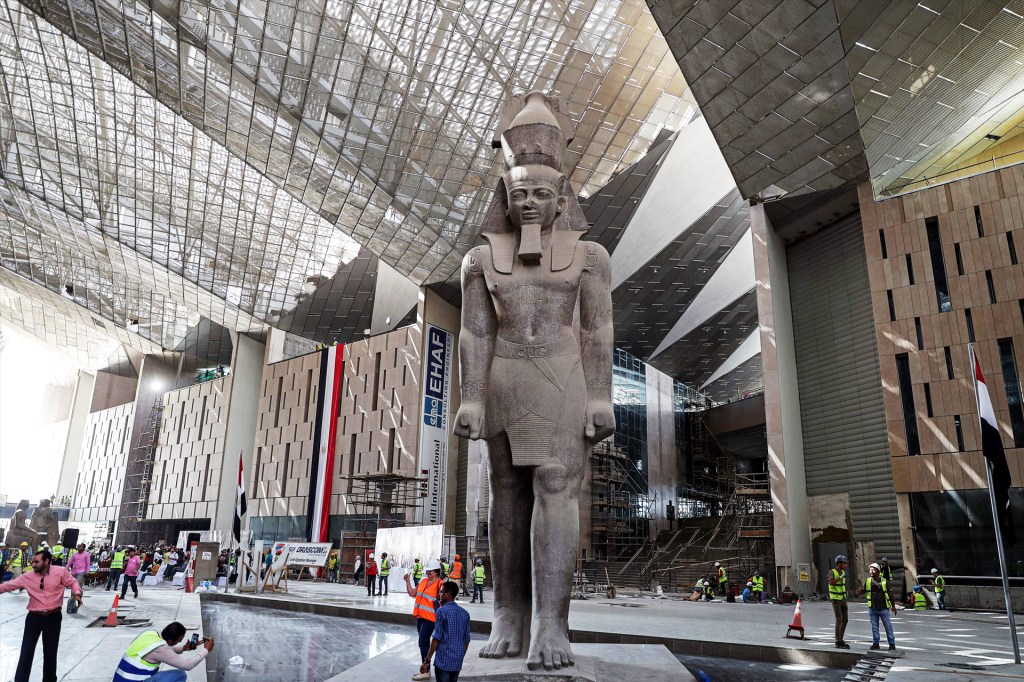
This is a statue of the Egyptian king Ramses II. It stands inside the new Grand Egyptian Museum.
MOHAMED EL-SHAHED—AFP/GETTY IMAGES
Tarek Sayed Tawfik is the former director general of the museum. He had an idea. “It came to me!” he told Smithsonian magazine. “I have four spaces representing the four rooms.” The museum’s King Tut exhibit will be set up much like the pharaoh’s tomb was found.
Look Inside
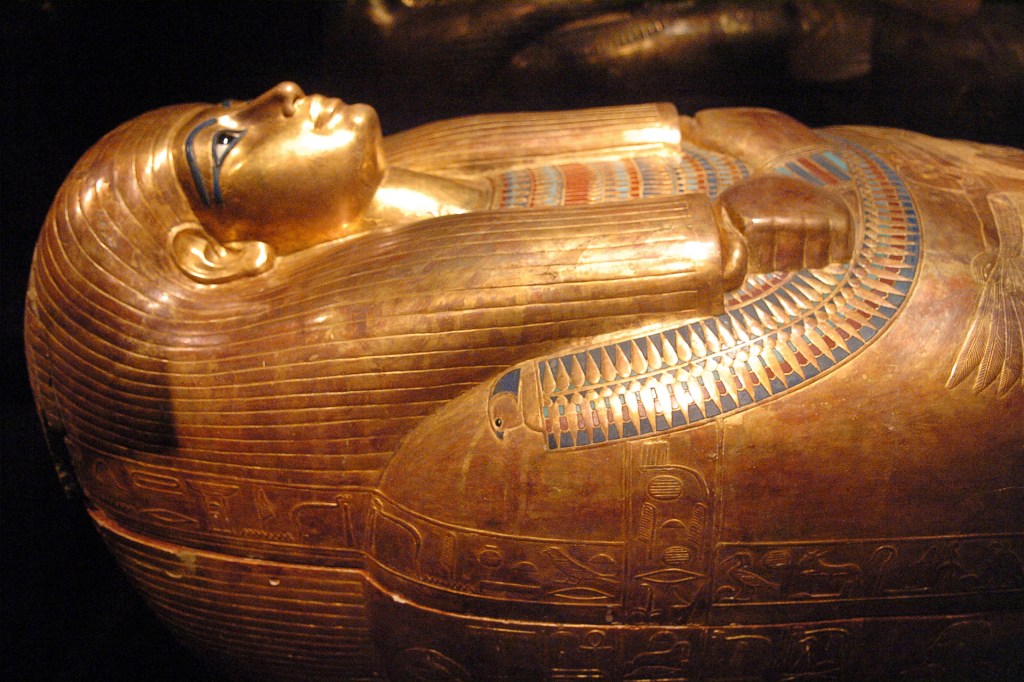
Pharaohs were often buried in more than one coffin. A mummy would be put in a coffin. That coffin would be placed inside a larger one. Some were made of wood and covered in gold sheets. King Tut had three coffins. The inner one was solid gold. It weighs nearly 250 pounds. It is worth about $1 million.












